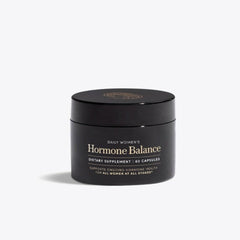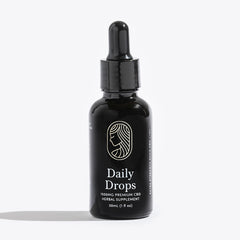Key Takeaways
- Menopause marks the end of menstrual cycles—naturally or surgically—and every woman’s transition is unique.
- Perimenopause is the transition phase with symptoms like irregular periods, hot flashes, sleep issues, and mood changes.
- Postmenopause is the stage after periods stop completely—symptoms and experiences vary for every woman.
-
Understanding these menopause stages helps women address common symptoms and make informed health decisions to support their health.
It seems like a lot more people are talking about menopause and perimenopause lately. There are products appearing in every category from skincare to clothing and experts everywhere telling you what to do about the 5, 10, or 50 symptoms you might experience. You would think that the burst of information might be making women more comfortable, but it seems to also be seeding confusion about this important life transition and what we need to do to support it.
Some Definitions
Let’s start with basics.
Menopause is a definable point in time which marks the permanent end of your menstrual cycle. There are two ways this happens:
-
Natural menopause is a normal decline in ovarian function and hormone production, eventually leading to the end of a woman’s cycle. If you have not had a period for consecutive months, that is menopause. The average age of natural menopause is 51.
-
Surgical menopause is the sudden cessation of cycles induced by the surgical removal of the ovaries. It is independent of age. Women can have their ovaries removed for a variety of health reasons such a problematic cyst, endometriosis, some types of cancer, and other causes.
-
Perimenopause is the period of time leading up to menopause when hormone levels start to fluctuate. Women are usually still having periods in perimenopause, but they might be irregular and even skip a month. Women may have a variety of symptoms during this transitional phase including changes in sleep, mood fluctuations, night sweats and/or hot flushes, vaginal dryness and altered attention. The average length is a few years – but some women have no symptoms and others may have a longer transition.
-
Post menopause. The rest of your life as a woman after your periods have stopped forever.
Supporting Your Health – Beyond Bones
For decades, menopausal nutritional guidance has provided minimal information that has been directly focused on women beyond information about bone health. But that has all started to shift as women are asking for more solutions for everything from hormonal balance to skin health to vaginal health.
Some products that can be very helpful include:
-
Daily Hormone Balance. A precision combination of two hero ingredients TrueBroc® (a broccoli seed extract) and Pycnogenol® (French maritime pine bark) this product is designed to help reduce peri-menopausal and post-menopausal symptoms.* Studies on these ingredients include support for hot flash and night sweat reduction, improved vein function, skin health, cognitive clarity, and balanced mood.* The broccoli seed extract also balances estrogen metabolism and detoxification, and helps your body manage oxidative stress.*
-
Nightly Sleep Gummies. Around half of women experience disordered sleep with menopause. This product brings together balanced cannabinoids (CBD, CBN) with chamomile and l-theanine for to help facilitate calm and rest.*
-
Microbiome Defense. When your hormones change in menopause those shifts commonly change the balance of the microbiome. These changes can impact the quality of gut health, urinary health, and vaginal health. Fortunately, Microbiome Defense support all three! A 5-strain blend of specially selected probiotics combined with clinically-tested full-spectrum cranberry extract, this product is like a one-stop-shop for your microbiome needs during and after menopause.*
Always keep in mind that supplements help, but they are most effective when paired with good sleep, nutrition, stress management, movement, and social support. Finding your overall routine in menopause can help you thrive in this new phase of life.
References:
- Salari N, Hasheminezhad R, Hosseinian-Far A, et al. Global prevalence of sleep disorders during menopause: a meta-analysis. Sleep Breath. 2023;27(5):1883-1897. doi:10.1007/s11325-023-02793-5
- Park MG, Cho S, Oh MM. Menopausal Changes in the Microbiome-A Review Focused on the Genitourinary Microbiome. Diagnostics (Basel). 2023;13(6):1193. Published 2023 Mar 21. doi:10.3390/diagnostics13061193
FDA DISCLAIMER. These statements and information have not been evaluated or approved by the Food and Drug Administration (FDA)






